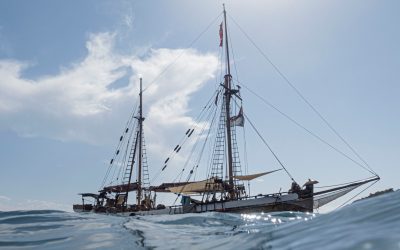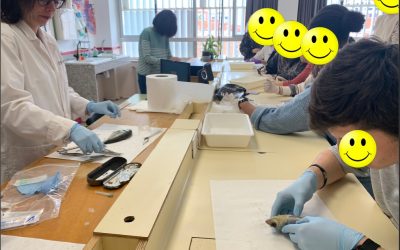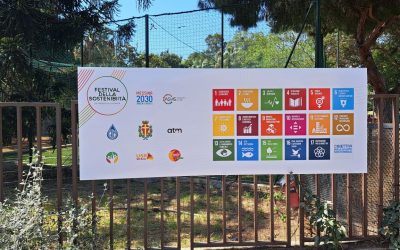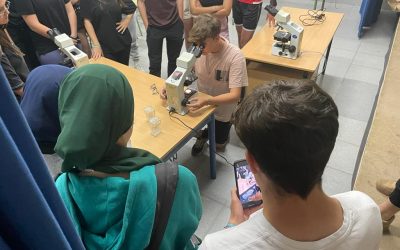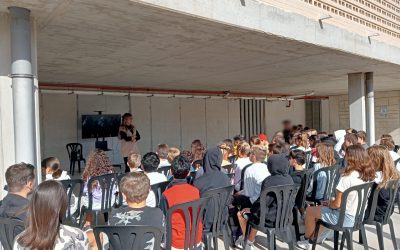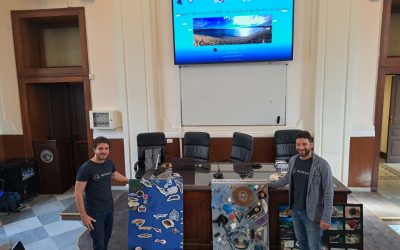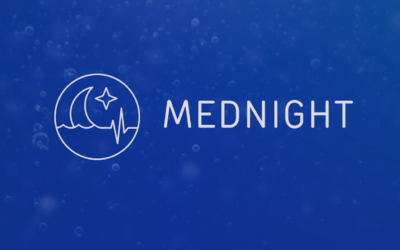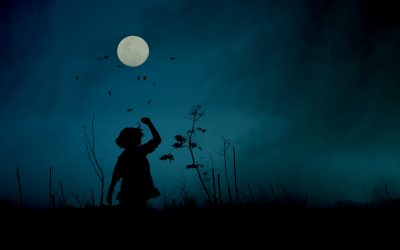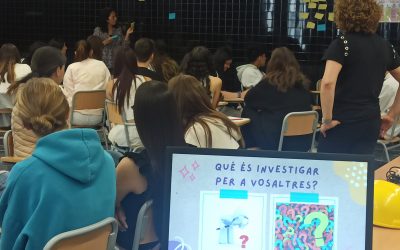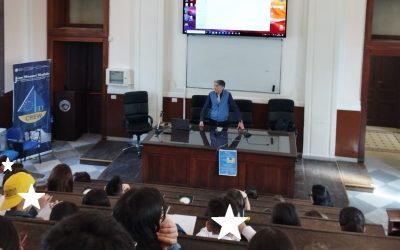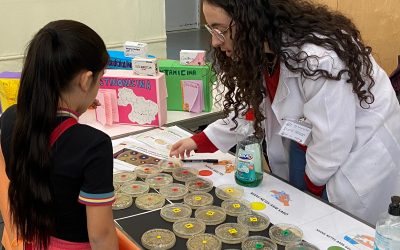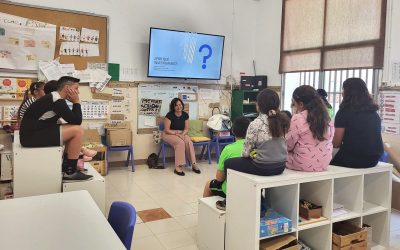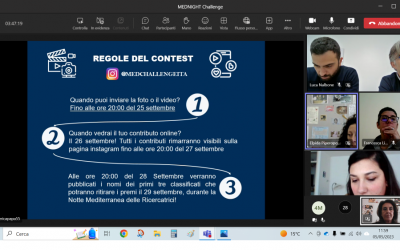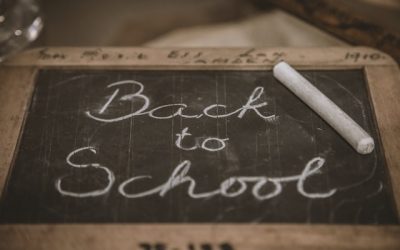Toftevaag ship’s log – Part 2
Research is most useful when it has concrete implications, being used to inform policies and work alongside stakeholders — crucial to making the right decisions. This is what I discovered during a Mednight-sponsored expedition in the Alboran Sea aboard the Toftevaag,...
ESTHER LEAL AND CINTA ZAPATER RESEARCHERS’ BACK TO SCHOOL – PENYAGOLOSA HIGH SCHOOL
Esther Leal Cebrián and Cinta Zapater Cardona motivated the students of Penyagolosa high School from Castelló to pursue higher studies in scientific careers. He stongly motivated the students, and showed the current research duties and details about their research....
Sustainability Festival
On 23rd May 2023, between 10:00 and 19:00, in one of the main parks of the city of Messina, Villa Dante, the Sustainability Festival took place, organized by AMAM SpA, Messina Social City, Messinaservizi Bene Comune, ATM SpA and the Regional School Office. The...
JOSÉ CEBRIÁN RESEARCHERS’ BACK TO SCHOOL – LA PUEBLA HIGH SCHOOL
On May 5 José Cebrián motivated the students of La Puebla high School from Vícar to pursue higher studies in scientific careers. He stongly motivated the students, and showed the current research duties and details about his research. With regard to his research work:...
CRISTINA BULTÓ RESEARCHERS’ BACK TO SCHOOL – PLAYAS DE ORIHUELA SCHOOL
On April 18 Cristina Bultó motivated the students of Playas de Orihuela School to pursue higher studies in scientific careers. Previusly, she visited 2 schools and 1 high school. In each visit, she stongly motivated the students, and showed the IEO equality program...
Orientajunior – 26 Maggio 2023
Orientation project for primary schools Department of Political and Legal Sciences - University of Messina On 26 May 2023, in the Campagna Room of the Department of Political and Legal Sciences of the University of Messina, the second meeting of the Orientajunior...
Toftevaag ship’s log – Part 1
Research is most useful when it has concrete implications, being used to inform policies and work alongside stakeholders — crucial to making the right decisions. This is what I discovered during a Mednight-sponsored expedition in the Alboran Sea aboard the Toftevaag,...
Kadir Has University organised Climate Change Congress on 4 March 2023.
Kadir Has University organised Climate Change Congress on 4 March 2023 with the participation of 100 attendance. In this congress, Assoc. Dr. Taner Arsan, who is the executive director of Mednight and advisor to the rector at Kadir Has University, started with his...
Third International Mediterranean Science Tales Contest organised by MEDNIGHT
The selected stories will be presented in hospitals, nursing homes and migrant reception centers and will be published in a book. The subject has to address some scientific aspect related to the Mediterranean. Registration is open until July 31. 08/05/2023 – The...
MÓNICA MICÓ, MARÍA TERESA PRATS AND VERÓNICA PONS RESEARCHERS’ BACK TO SCHOOL – JAUME I HIGH SCHOOL
On April 27 Mónica Micó Cabedo, Mª Teresa Prats Valls, Verónica Pons Ferri, members of GEQUO motivated the students of IES Jaume I to pursue higher studies in scientific careers. With regard to their research work: GEQUO is a research team associated with FISABIO,...
Orientajunior – 25 Maggio 2023
Orientation project for primary schools Department of Political and Legal Sciences - University of Messina On 25th May 2023, in the Campagna Room of the Department of Political and Legal Sciences of the University of Messina, the first meeting of the...
Seis centros educativos de la Comunitat Valenciana participan en el proyecto de divulgación científica ‘El Reto Fisabio’
• Personal investigador de Fisabio ha planteado cinco retos científicos a alumnado de centros educativos de poblaciones valencianas• Los/las estudiantes han desarrollado investigaciones para resolver los retos planteados y han expuesto los resultados en un evento...
Dr. Tania Fleitas visits Benavites school
"They welcomed us as if it was the most beautiful thing in their lives. I will never forget the experience. They were very special". With these words Dr. Tania Fleitas Kanonnikoff, researcher at INCLIVA in the gastric cancer field, recalls her visit to the Benavites...
Mednight Challenge Italia – MEDITERRANEAN SEA
On 5th May 2023 the online event "Mednight Challenge Italia - MEDITERRANEAN SEA" was held.The webinar, aimed at secondary school students, was conducted by three pairs of researchers from the University of Messina, who developed topics related to the protection of the...
From December to March, more than 1200 students participated in the activity Researchers at Schools
Following the great success of the activities held in September, in the framework of the Mediterranean Researcher's Night, where more than 530 students of Mytilene participated, more activities were organized during the academic year, targeting students from all over...

